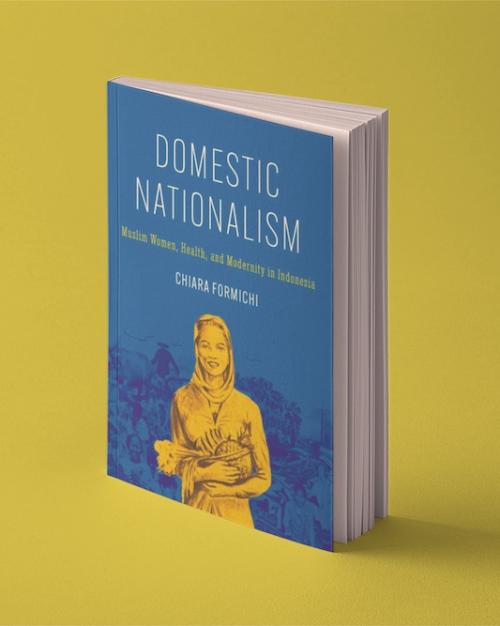In the early 20th century Dutch East Indies, colonial authorities set about instructing residents of Java and Sumatra on hygiene and nutrition.
“Literate women often noted that the ‘new scientific knowledge’ broadcast by the Dutch administration echoed indigenous practices, such as the advantages of eating unpolished rice, or religious mandates like the requirement for extended breastfeeding,” said Chiara Formichi, the H. Stanley Krusen Professor of World Religions in the College of Arts and Sciences. By medicalizing cleanliness and health, the Dutch marginalized women’s traditional influence and knowledge – but the women pushed back, Formichi writes in her new book, “Domestic Nationalism: Muslim Women, Health, and Modernity in Indonesia.”
Resisting the boundaries imposed on them by the colonial and postcolonial state, Indonesian women created a public voice for themselves, sharing their ideas in vernacular magazines, news and lifestyle media and advertisements. In ”Domestic Nationalism,” published Oct. 28 by Stanford University Press, Formichi argues that during the 1920s to 1950s, Indonesian women’s domestic activities contributed to nation-building as a political project.
The College of Arts and Sciences spoke with Formichi about the book.
Question: In the Dutch East Indies, what were colonial authorities telling women about health, nutrition and cleanliness? How was the information reaching women?
Answer: Having read about hygiene work in Euro-America, China, Iran and British India, I had come to expect that the Dutch would have been engaging women directly, as first agents of the sanitary drive. But in fact, they were largely ignored. The Dutch almost exclusively engaged with the men, who they saw as (marginally) better educated.
It was the American physician John Lee Hydrick, sent to Java by the Rockefeller foundation to work on hookworm eradication in the mid-1920s, who after a few years acknowledged that engaging men in rural hygiene work was not effective, and that working directly with women yielded far better results. In the 1930s, Hydrick started to train female health inspectors, and to give them prominent positions in his units, as he saw that this new channel of knowledge transmission was far more effective.
Q: Why is the Islamic faith of the people of Java and Sumatra a key part of this story?
A: This was the hardest part of writing the book. On the one hand I had expected women authors to make direct references to Islam when discussing their domestic work or commitment to hygiene, but I found these connections to be instead fleeting and rare. On the other hand, my sources consistently hinted at how they experienced the world as Muslim women, even when writing on platforms that were not explicitly religious ones. Islam was omnipresent, but neither hegemonic nor a deterministic force. It had a diffused presence instead.
In this book, then, Islam is neither consistently apparent in explicit ways, nor always at the forefront as the primary lens of analysis. Islam does, however, sit at the center of my analysis because I recognize that the materials I worked with, which originated in Java and Sumatra, radiated Islamic worldviews and ethos.
Q: How has Indonesia been influenced long-term by women claiming authority and agency in domestic arenas?
A: The core argument of my book is that in the 1920s-1950s, Indonesian women’s domestic activities contributed to nation-building as a political project, whether anticolonial or nationalist. I also argue that such engagement with seemingly “private” and “womanly” matters, such as infant care and nutrition, were in fact crucial to the shaping of Indonesia as a “modern” postcolonial nation — and that women themselves were aware of that contribution, as writers, nurses and mothers. But this understanding of the “domestic” as consciously constitutive of the “public” was erased by decades of what has been defined as a hypermasculine authoritarian state, in which women’s role was increasingly narrowed, and their public contribution redefined as an aspect of their “natural” gendered domestic labor.
So, when last month [September], Indonesian women took to the streets to protest corruption, with reports stating that these women mimicked washing clothes and sweeping the floor during demonstrations, some commentary suggested that Indonesian women could wield political influence “when they step[ped] outside their prescribed identity of mother-wife to embrace the role of activist ibu” [mother-wife]. The common assumption was that political engagement is exogenous to gendered activities. But in fact, the women who are joining in the protests are not “setting aside” their ascribed gendered roles: I would say that they are leveraging them.




